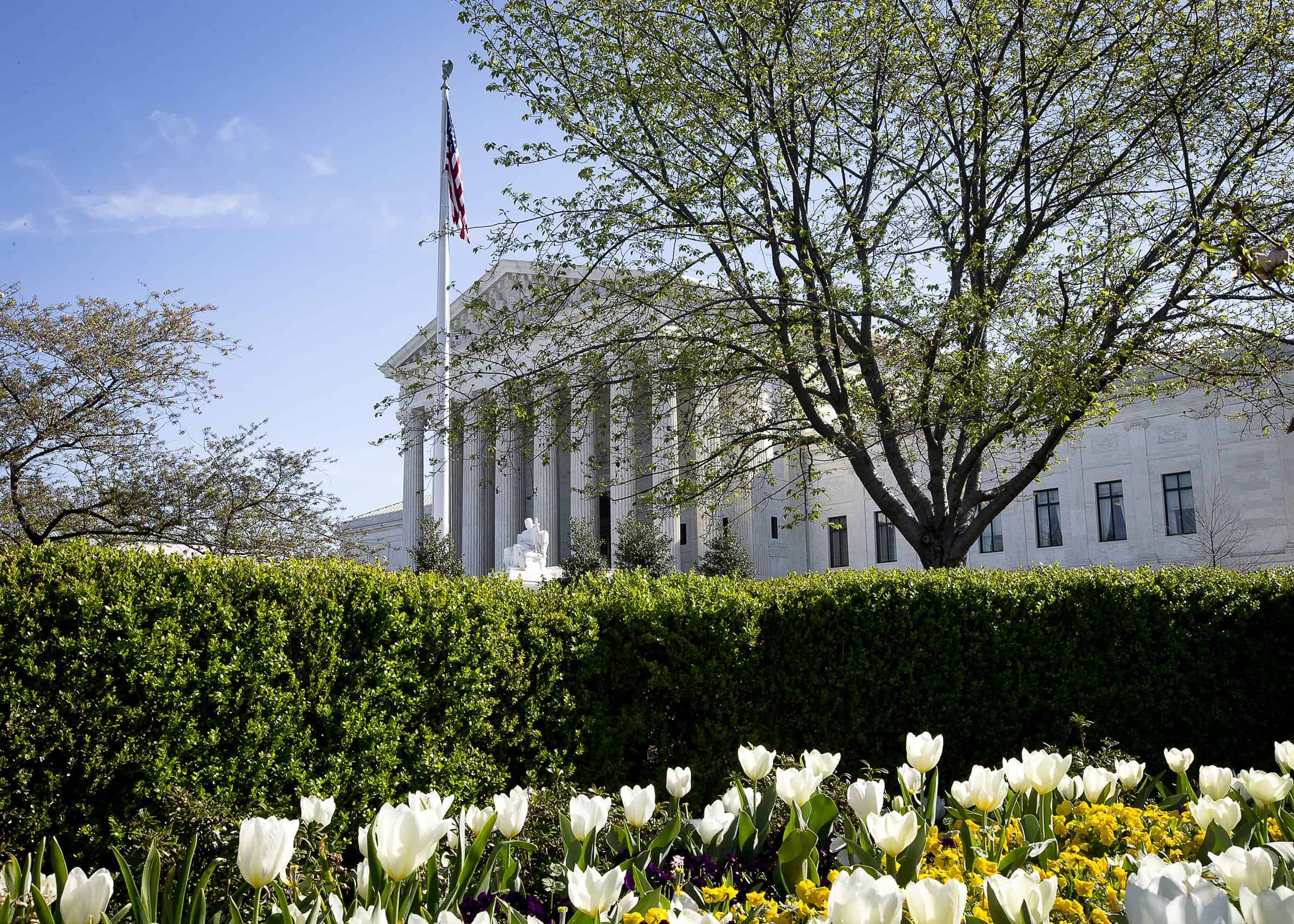It may seem an inopportune moment to rethink our political system as we find ourselves in the midst of a pandemic. However, the unprecedented near-halt of our society and economy has given us a rare opportunity to step back and re-examine how we structure our world and the impact we have on one another and the environment. Now that we’re back to basics, perhaps we can think more clearly and consider what alternatives exist.
The rampant speculation as to what comes next (or ought to come next) after COVID-19 is primarily geared toward outcomes: How long will it take to get the economy back to where it was? What will the 2020 presidential election look like if we vote by mail? There is also fear-mongering about newly emboldened authoritarian governments and demands for an expanded social safety net. Unsurprisingly, we shy away from a frank discussion of fundamental values, since we suspect that it will probably lead to stalemate if not leave us with less clarity than before.
But I say, no — let’s be frank. We’re in dire need of explicitly defining and acting on our values. I believe that, while respecting the dignity of all persons, we should consider giving priority to the common good over individual rights and liberties. Simply put, our surviving coronavirus and climate change depends on it.
One category-breaking scholar who also thinks this way is Adrian Vermeule, a professor at Harvard Law and extremely-online Catholic. Here I want to examine his recent proposal for prioritizing the common good, then examine some of his concrete proposals. My hope is that, even if we don’t accept Vermeule’s proposal wholesale, his articulation of the common good will give us a starting point for thinking about public policy in a more fruitful way.
Vermeule’s Take on the Common Good
Adrian Vermeule, “a star on the conservative wing of legal academia” before joining Harvard Law, converted to Catholicism less than five years ago. In spite of his short time on this side of the Tiber, he makes waves like few Catholics in the English-speaking world can.
A recently published article in The Atlantic has confirmed his reputation for ruffling feathers. In his manifesto, Vermeule proposes a re-reading of the United States Constitution according to what he calls “common-good constitutionalism.” Though his declared target is the conservative reading of the Constitution called Originalism, his position is much more ambitious than a simple critique. He advances a complete re-reading of the founding document, one that discards the emphasis on individual liberties and enthrones the common good.
His argument can be summarized as thus: liberalism, the system of law that posits that individual rights should be protected by governments over and against the will of the majority or a government that represents the majority, is deeply flawed. It claims to operate on principles of reason, yet is deeply irrational; it claims to be free of religion, yet promotes its own worldview, with its own liturgies and feasts that is in conflict with a worldview rooted in faith. (As another piece of his claims, all human conflict is theological.) Vermeule contends these contradictions should be intolerable to people of faith, but also on their own terms. Liberalism is, in short, a greater problem than it is a solution.
Therefore, he claims, we ought to return to a more substantive worldview, encapsulated in the idea of the common good. To do so, we need not start from scratch; rather, we can take advantage of the American founding document’s ambiguities. In other words, it’s not so hard to re-read the Constitution as a communitarian document rather than an individualistic charter.
Specifically, this would be a society grounded in the common good as our first priority. The common good as Vermeule sees it does not mean general wellbeing, but instead safeguarding certain goods through certain means. In his concise formulation, the goods are “peace, justice, abundance, health, and safety, by means of just authority, hierarchy, solidarity, and subsidiarity.” These are goods necessary not only for a good life, but very possibly for human existence itself.
To my ears, this is not so objectionable on its own terms. Indeed, millennials, though often disparaged as the “me” generation, might easily get behind the common good as the “we” generation. Then again, the majority of commentators find Vermeule’s ideas to be problematic.
As most would have anticipated, Vermeule’s piece elicited furor, and more furor than dialogue. Matt Ford summed it up in The New Republic: “On social media, Vermeule’s autocratic vision for American life received a negative reception, to say the least. Legal academics across the political spectrum veered between mockery and horror. Some observers called him a fascist. Others sharply criticized The Atlantic for publishing his arguments in the first place.”
Both Ford and James Chappel see Vermeule as a fringe character with dangerous proposals and dangerous connections in legal circles. Most critics from the left identify him with theocracy, and caricature his ideas as simple-minded fundamentalism dressed up in a novel, but questionable, legal philosophy.
Vermeule’s work has also received rebukes from conservatives, who see him as breaking with the orthodoxy of Originalism, not to mention with principles of free market ideology in other writings.1
I suspect Vermeule’s critics deploy such strong rhetoric because they see his work as further enabling a power-hungry administration. While I understand their objection to how Vermeule’s work may be used in the current political climate, I do not see that as a sufficient reason to ignore the ethical principle Vermeule wants to deploy in American life — the common good.
Of course, when most people hear “the common good,” they do not necessarily think within the same framework as Vermeule does. The ambiguity of the term leaves it open to debate, which seems to be a weakness for turning it into a criterion for laws or policies. However, Vermeule does not shy away from real proposals, which we’ll consider next.
Concrete Proposals for the Common Good
Vermeule believes the common good he has laid out — peace, justice, abundance, health, and safety — ought to be ensured for all, even if that is over and against the will of citizens. Specifically, Vermeule applies common good principles to three of the most intransigent problems of our day: coronavirus, climate change, and economic inequality.
First, consider our current circumstances. As this pandemic continues, it seems the only way out, toward a new normal, may be through widespread vaccination, presuming a vaccine can be found to prevent coronavirus. However, because individual rights reign supreme, those who believe vaccinations are a poison would, one presumes, be able to opt out. If they weren’t, it would certainly be seen as a government infringement and would be taken to court.
Under Vermeule’s conception of the common good, which includes public health, the state would not need to rely on voluntary compliance, but could overrule any appeal to individual rights by pointing to the necessity of universal vaccination for ensuring the health of all.2 Forced vaccination may sound radical, but in Vermeule’s conception, the law is not oppressive, but “parental, a wise teacher and inculcator of good habits.”
Another area where common good constitutionalism might advance the conversation is in our response to climate change. As Pope Francis has emphasized in his encyclical Laudato si’ (and as Vermeule pointed out in a previous article for Church Life Journal), individualism prioritizes personal wants over collective needs, and is predicated on a deficient view of the human person (Laudato Si’ 119). When the climate crisis comes, it will be a matter of both safety and justice: safety, because stronger hurricanes and stronger droughts will take lives, and justice, because the developing world will suffer more than those who contribute most to climate change in the first place.
The common good requires that we take drastic measures, and since the reduction of the carbon footprint of many first-world citizens will not come around by market pressures or altruism, we would need a state to coax (if not coerce) us into taking climate change seriously.
Interestingly, Vermeule is also amenable to the abolition of the billionaire class and redistribution of wealth; he claims it would be an administrative puzzle to implement, but that a principle of solidarity should be a legal instrument for reducing economic inequality. This is a clarity of commitment I admire.
Young people today are acutely aware of problems like coronavirus, climate change, and economic inequality. They stand to be disproportionately affected by these issues, not to mention others. The time is ripe for a renewal of the common good, even if it means sacrificing some of our cherished individual liberties. If liberal democracy cannot solve our collective problems, we can hardly be blamed for allowing ourselves to be romanced by a political system that might.
- The backlash seems to confirm one of Vermeule’s basic convictions: that liberalism does not truly operate out of a framework of tolerance, because it finds such a proposal as his to be intolerable. ↩
- “Elaborating on the common-good principle that no constitutional right to refuse vaccination exists, constitutional law will define in broad terms the authority of the state to protect the public’s health and well-being, protecting the weak from pandemics and scourges of many kinds—biological, social, and economic—even when doing so requires overriding the selfish claims of individuals to private ‘rights’.” — Beyond Originalism ↩


